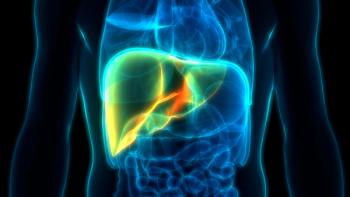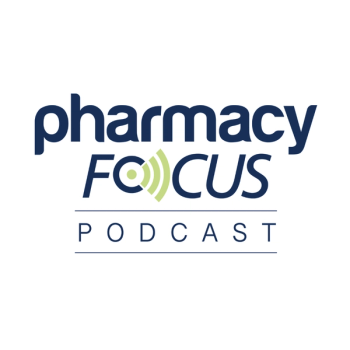
Patients with a disorder from this family of neurodevelopmental conditions face a lack of approved treatment options, making radiprodil poised to transform the treatment paradigm.

Patients with a disorder from this family of neurodevelopmental conditions face a lack of approved treatment options, making radiprodil poised to transform the treatment paradigm.

As indicated by prior literature, a second dose of intravenous immunoglobulin (IVIG) in patients with Guillain-Barré syndrome increases serum immunoglobulin G levels without improving clinical outcomes.

Although dietary changes have historically been a key approach to managing eosinophilic esophagitis, their limitations highlight the need for pharmacologic treatments.

DC646 had a strong safety profile, targeted intestinal FXR, and disrupted FXR-co-activator interactions in metabolic dysfunction-associated steatohepatitis (MASH).

Matthew Zirwas, MD, addresses the significant financial burden associated with the medication, emphasizing the importance of pharmacists in navigating prior authorizations and access patient support programs.

Some of these approaches for chronic kidney disease (CKD) include cystatin C, SGLT2 inhibitors, point-of-care testing in remote areas, and acid-lowering medications.

Pharmacists are crucial in Elevidys administration, ensuring accurate dosing, coordinating treatment timing, and managing adverse effects to optimize patient outcomes.

Eculizumab, a humanized monoclonal antibody, was first approved for adults with generalized myasthenia gravis in 2017.

Patients may have concerns about the boxed warning and other potential adverse effects associated with topical ruxolitinib for atopic dermatitis and vitiligo.


Icotrokinra, an oral pill that blocks the IL-23 receptor, had a favorable safety profile in adults and adolescents 12 years and older with moderate-to-severe plaque psoriasis.

Currently, EN001 is undergoing evaluation in a phase 1b trial.

The novel formulation of trametinib has the potential to change the treatment paradigm of human papillomavirus (HPV) and prevent infections before they progress to deadly cancers.

The treatment's expanded indication for chronic kidney disease (CKD) is expected to be available by April 2025.

With the new designation, OpCT-001 can receive expedited investigations into its potential to improve vision function in patients with primary photoreceptor diseases.

At 1- and 2-year follow-up points, ruxolitinib led to considerable improvements in survival in patients with myelofibrosis who develop graft-versus-host disease (GVHD).

Elevidys offers significantly higher dystrophin production than existing Duchenne muscular dystrophy treatments but requires intensive monitoring for adverse events.

Following allogeneic hematopoietic stem cell transplantation (allo-HSCT), luspatercept effectively improved signs of anemia in patients with a variety of hematologic conditions.

The FDA is issuing new changes to labels on testosterone products, clarifying that there are no increases in major cardiac events among men with hypogonadism but noting an increase in blood pressure with the use of such products.

The action follows pooled data from 2 studies that enrolled patients with hemophagocytic lymphohistiocytosis (HLH)/macrophage activation syndrome (MAS) in Still disease.

Obinutuzumab is effective in reducing proteinuria and preserving kidney function in lupus nephritis, with consistent benefits across high-disease activity subgroups.

Pharmacists are integral to setting patient expectations, monitoring liver health, and ensuring adherence to long-term follow-up for optimal outcomes with etranacogene dezaparvovec.

In this episode, Jill Simonian and Codi Peterson explore the evolving role of pharmacists in medical cannabis, addressing legal complexities, patient counseling, and key considerations for safe and effective use.

Although tenofovir amibufenamide and tenofovir disoproxil fumarate (TDF) had similar effects, the former resulted in better renal safety and did not impact lipid levels.

Intravenous immunoglobulin therapy for patients with CIDP requires navigating insurance coverage and prolonged therapy.

Although more research is needed in pediatric patients, biosimilars could improve treatment access and reduce costs.

Etranacogene dezaparvovec offers a long-term, cost-effective solution for hemophilia B by providing sustained factor IX expression but requires careful patient selection and post-infusion liver monitoring.

Plasma therapy can involve burdensome procedures and infusions for patients, but pharmacists can use their expertise to make the process easier and more convenient.

The new data demonstrates the effectiveness of Mim8 in children with hemophilia A regardless of inhibitor status, expanding the populations in which the novel drug in development could have a treatment benefit.

Improvements in baseline for markers of hemolysis (indirect bilirubin, lactate dehydrogenase, and haptoglobin) were observed only in the mitapivat arm.